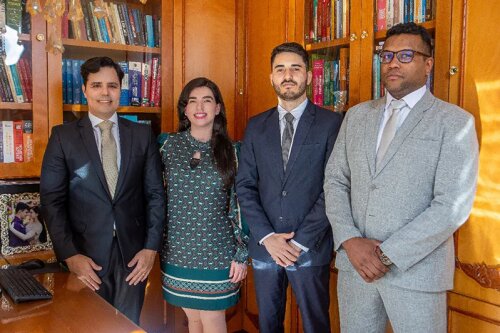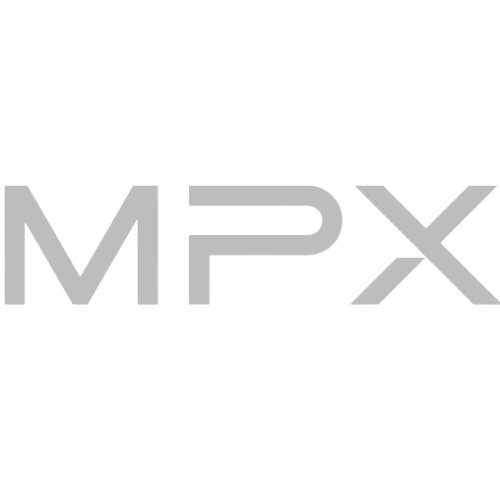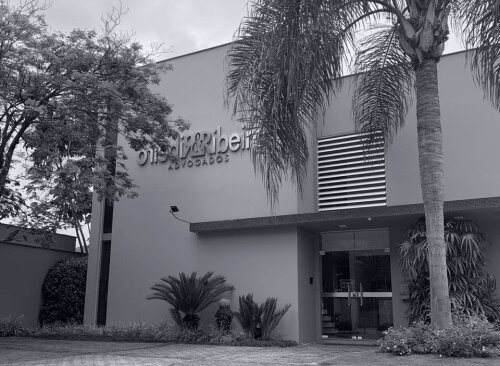Best Telecommunications and Broadcast Lawyers in Brazil
Share your needs with us, get contacted by law firms.
Free. Takes 2 min.
Or refine your search by selecting a city:
List of the best lawyers in Brazil
About Telecommunications and Broadcast Law in Brazil
Telecommunications and Broadcast law in Brazil governs the regulations and operations of communication systems, including television, radio, telephone, and internet services. These laws are designed to protect the rights of consumers, promote fair competition, and ensure the quality and reliability of communication networks.
Why You May Need a Lawyer
You may need a lawyer in the field of Telecommunications and Broadcast in Brazil for various reasons, including disputes over licensing agreements, regulatory compliance issues, contract negotiations, mergers and acquisitions, and litigation involving intellectual property rights.
Local Laws Overview
Key aspects of local laws in Brazil that are particularly relevant to Telecommunications and Broadcast include the Telecommunications Act, which outlines the rules governing the sector, the National Telecommunications Agency (ANATEL) responsible for regulating and supervising the industry, and specific regulations related to broadcasting and digital media services.
Frequently Asked Questions
1. What is the role of ANATEL in regulating the telecommunications sector in Brazil?
ANATEL is the regulatory agency responsible for overseeing the telecommunications industry in Brazil, enforcing compliance with regulations, licensing operators, and promoting competition and innovation in the sector.
2. Do foreign companies need special permits to operate in the telecommunications and broadcast sector in Brazil?
Yes, foreign companies looking to operate in Brazil's telecommunications and broadcast sector must obtain specific licenses and comply with local regulations to legally provide services in the country.
3. Are there specific regulations for advertising on broadcast media in Brazil?
Yes, there are regulations governing advertising on broadcast media, including restrictions on content, timing, and placement, to ensure fair competition and protect consumers from deceptive practices.
4. What are the penalties for non-compliance with telecommunications regulations in Brazil?
Penalties for non-compliance with telecommunications regulations in Brazil may include fines, license suspensions, and other administrative sanctions imposed by ANATEL or other regulatory authorities.
5. Can individuals file complaints against telecommunications providers in Brazil?
Yes, consumers can file complaints against telecommunications providers in Brazil for issues such as billing disputes, service outages, or violations of consumer rights, usually through ANATEL's consumer protection channel.
6. How can a lawyer help with telecommunications and broadcast licensing applications in Brazil?
A lawyer can assist with preparing and submitting licensing applications, ensuring compliance with regulatory requirements, negotiating terms with licensing authorities, and handling any appeals or disputes that may arise during the process.
7. What are the intellectual property considerations for telecommunications and broadcast companies in Brazil?
Intellectual property considerations for telecommunications and broadcast companies in Brazil include protecting proprietary technologies, trademarks, copyrights, and other intellectual assets, and enforcing rights against infringement or unauthorized use by competitors.
8. Are there specific data protection laws that telecommunications and broadcast companies must comply with in Brazil?
Yes, telecommunications and broadcast companies in Brazil must comply with the General Data Protection Law (LGPD), which regulates the collection, processing, storage, and sharing of personal data to protect individuals' privacy rights and prevent data breaches.
9. What are the requirements for broadcasting content on digital platforms in Brazil?
Requirements for broadcasting content on digital platforms in Brazil may include complying with age ratings, censorship guidelines, and restrictions on harmful or offensive material to ensure the protection of minors and promote responsible broadcasting practices.
10. How can a lawyer assist with mergers and acquisitions in the telecommunications and broadcast sector in Brazil?
A lawyer can provide legal guidance on due diligence, negotiating and drafting agreements, obtaining regulatory approvals, and resolving any legal issues related to mergers and acquisitions in the telecommunications and broadcast sector in Brazil.
Additional Resources
For more information and resources related to Telecommunications and Broadcast law in Brazil, you can visit the National Telecommunications Agency (ANATEL) website, the Brazilian Telecommunications Society (SBrT), and the Brazilian Association of Radio and Television Broadcasters (ABERT).
Next Steps
If you require legal assistance in the field of Telecommunications and Broadcast in Brazil, it is advisable to consult with a qualified lawyer who specializes in this area of law. They can provide you with personalized advice, represent your interests in legal matters, and help you navigate the complexities of the regulatory framework in Brazil.
Lawzana helps you find the best lawyers and law firms in Brazil through a curated and pre-screened list of qualified legal professionals. Our platform offers rankings and detailed profiles of attorneys and law firms, allowing you to compare based on practice areas, including Telecommunications and Broadcast, experience, and client feedback.
Each profile includes a description of the firm's areas of practice, client reviews, team members and partners, year of establishment, spoken languages, office locations, contact information, social media presence, and any published articles or resources. Most firms on our platform speak English and are experienced in both local and international legal matters.
Get a quote from top-rated law firms in Brazil — quickly, securely, and without unnecessary hassle.
Disclaimer:
The information provided on this page is for general informational purposes only and does not constitute legal advice. While we strive to ensure the accuracy and relevance of the content, legal information may change over time, and interpretations of the law can vary. You should always consult with a qualified legal professional for advice specific to your situation.
We disclaim all liability for actions taken or not taken based on the content of this page. If you believe any information is incorrect or outdated, please contact us, and we will review and update it where appropriate.
Browse telecommunications and broadcast law firms by city in Brazil
Refine your search by selecting a city.














